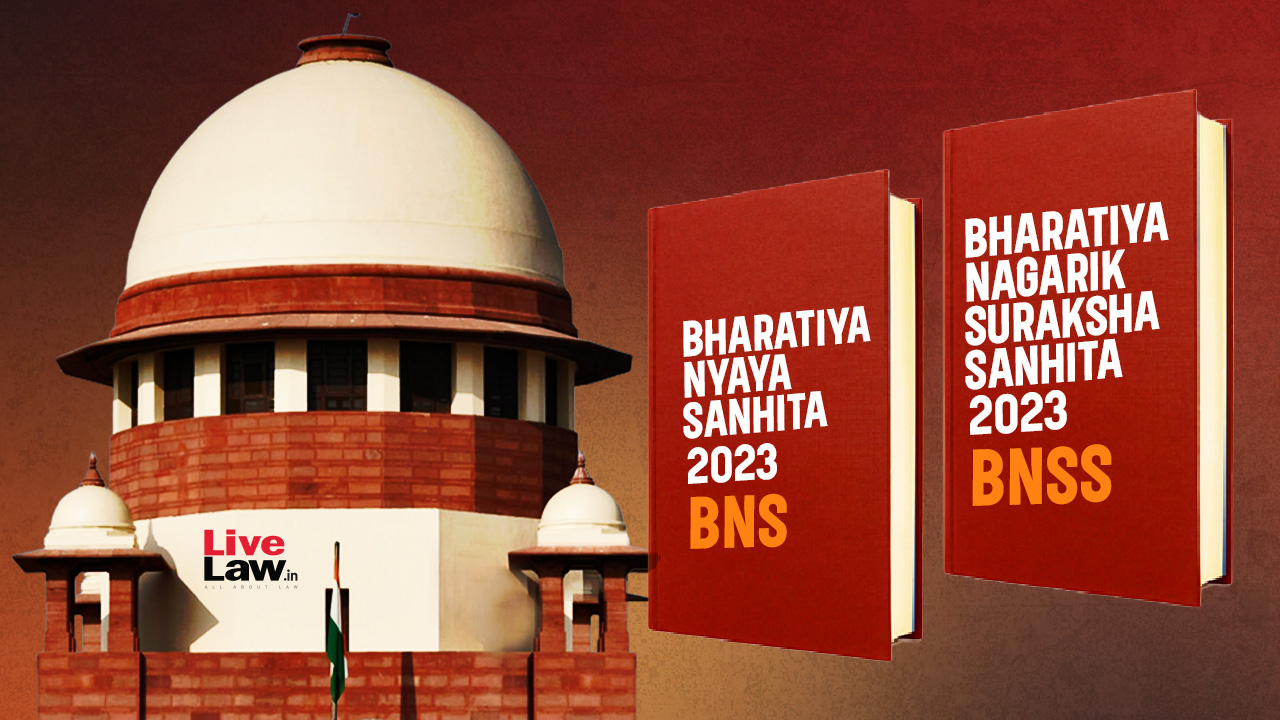 |
|
The Supreme Court of India is currently deliberating on a crucial legal challenge questioning the constitutional validity of certain provisions within the Bharatiya Nagarik Suraksha Sanhita, 2023 (BNSS) and the Bharatiya Nyaya Sanhita, 2023 (BNS). These new laws, which came into effect on July 1st, replaced the Code of Criminal Procedure and the Indian Penal Code, respectively. The core of the challenge revolves around the treatment of organized crime within the framework of these new, more general laws. The petitioner, Azad Singh Kataria, a retired BSF Commandant, argues that by incorporating provisions related to organized crime (previously handled under specialized legislation such as MCOCA – Maharashtra Control of Organized Crime Act) into the general penal code without the same level of procedural safeguards, the new laws violate Articles 14 and 21 of the Indian Constitution, which guarantee equality before the law and protection of life and personal liberty, respectively. This is a significant legal issue because it directly impacts the balance between upholding public safety and ensuring the fundamental rights of those accused of serious crimes.
The heart of the Supreme Court's questioning lies in the debate over whether the Parliament is obligated to incorporate the same procedural safeguards in general legislation that exist in specialized state-level laws. Justice Kant, part of the bench hearing the case, questioned the need for such mirroring, suggesting that the Parliament has its own process of deliberation and should not be automatically bound by what state legislatures might include in their laws. The petitioner's counsel, Senior Advocate Dr. Menaka Guruswamy, countered by arguing that the specialist legislation, such as MCOCA and UAPA (Unlawful Activities (Prevention) Act), have historically been deemed constitutional precisely because of their inclusion of robust procedural safeguards that uphold principles of fair trial, protection against self-incrimination, and the right to legal representation. She argues that the absence of these safeguards in the general laws undermines these fundamental constitutional values. The court also addressed the concern that the new laws might simply be copy-pasting sections from existing legislation without proper consideration, an argument that the bench challenged, emphasizing the presumption of legislative intent and the Parliament's deliberate consideration of the consequences.
A central point of contention is Section 187(3) of the BNSS, which deals with police custody. This provision has replaced Section 167(2)(a) of the CrPC, effectively removing the previous 15-day limit on police custody. The petitioner's counsel expressed profound concern about the potential for abuse and the threat to an accused person's mental and physical well-being if police custody is extended to 60-90 days, creating opportunities for coerced confessions and physical torture. The absence of the safeguards included in judicial custody, such as access to a lawyer and regulated meal and sleep times, makes extended police custody extremely problematic. The court asked the petitioner's counsel to analyze the interaction between Sections 58 and 187(1) of the BNSS to determine if they would override Section 187(3) or vice-versa. This highlights the complex interplay of different legal sections and the need for a meticulous examination of the legal framework to determine whether the safeguards are adequately protecting the rights of the accused. The petitioner also challenges sections related to organized crime, terrorist acts (Sections 111 and 113 of the BNS) and sedition (Section 152 of the BNS). The reintroduction of sedition, previously put on hold by the Supreme Court, is a particularly contentious point. The petitioner argues it is a vague provision that can be misused to suppress dissent.
The broader context of this case extends beyond the specific legal challenges. The court's consideration of the societal implications of organized crime and the public's right to safety forms a significant backdrop to the discussion. Justice Kant's questions about the safety of public transportation and the rising prevalence of various organized criminal activities, such as drug trafficking and cybercrime, highlight the serious concerns driving the government's approach to law reform. The petitioner's counter-argument emphasizes the risks of overreach, highlighting the potential for misuse of the broader definitions of organized crime, leading to the conflation of minor offenses with serious organized criminal activity. This risks overwhelming the investigative capacities of law enforcement and potentially undermines the fight against serious crime by diverting resources and focus. The petitioner also suggests that addressing organized crime more effectively would require strengthening police capacity and resources rather than solely relying on more stringent legislation. The Supreme Court's decision will have a significant impact on how organized crime is prosecuted in India, balancing the need for effective crime control with the protection of fundamental rights. The case further highlights the ongoing tension between the executive's power to define and enforce laws and the judiciary's role in safeguarding individual rights and ensuring the legality of those laws.
The Supreme Court adjourned the matter to allow for further examination of the legal provisions by the petitioner's counsel. This includes providing a comparative chart illustrating the differences between the old and new laws and clarifying the interaction of various sections within the new legislation. The ultimate outcome will have wide-ranging implications for the balance between public safety and individual rights in India, setting a crucial precedent for future legal challenges related to criminal justice reform. The case underscores the ongoing struggle to create a system that is both effective at combating crime and respectful of the fundamental freedoms guaranteed by the Constitution. The final decision of the court will not only resolve this specific legal challenge but also offer valuable insights into how the Indian legal system approaches the delicate task of striking a balance between safety and liberty.
